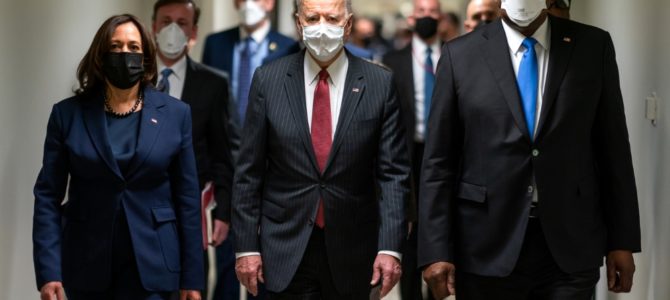
No single foreign policy issue will be as politically charged and controversial as President Biden’s moves to re-enter the Joint Comprehensive Plan of Action with Iran. While the Biden administration shows positive signs in their policies towards the Chinese Communist Party — essentially continuing former Secretary of State Mike Pompeo’s plan — the early signals show Biden’s team fails to recognize the new reality in the Middle East in a post-Abraham Accords world.
History does tend to repeat itself. During the 2014-2015 negotiations with Iran, U.S. diplomats are rumored to have run down the hotel hallways of Geneva chasing their Iranian counterparts, who had left the negotiating table. Our lead negotiator even admitted to crying in front of senior Iranian officials, which supposedly moved her theocratic counterparts.
The deal the Obama administration eventually sealed, but did not bring to the U.S. Congress, reflected the desperation of the western negotiators. After several years of increased terrorism in the region by the regime in Iran, the United States left that deal in 2018 and enacted a historic campaign of maximum pressure that simultaneously forced the regime into economic, political, and diplomatic predicaments.
President Biden has inherited an Iran in desperate need of a diplomatic and economic lifeline. Its coffers are $200 billion lighter because of U.S. sanctions, and its proxies like Hamas and Hezbollah are on the verge of bankruptcy (which was the point of our campaign).
What happened next was perhaps even more fearful for the regime when, in November 2019, Iranian citizens flooded the streets of 200 cities, burning down dozens of regime-controlled buildings, ripping down revolutionary posters, and refusing to walk over the American and Israeli flags painted on the streets. Last year, the regime became even further isolated in the region as its neighbors made peace with their neighbor, Israel.
The Trump administration handed the Biden administration peak negotiating strength with Iran, and Secretary of State Antony Blinken would do well to use that leverage. After Iran ignored Biden’s offer to return to the JCPOA, however, U.S. officials are now reportedly preparing a fresh gambit.
Last week, anonymous U.S. officials told Reuters Iran doesn’t need to come back into compliance with the JCPOA to receive a respite from sanctions. This week, Politico reported a proposal is forthcoming that would only ask Iran to halt some of the technical steps it made in January in exchange for U.S. economic relief. If true, this would be foreign policy malpractice.
Thus far, the Iranian regime has taken no steps of goodwill to merit this new proposal, responding to the new administration with intransigence when gestures of goodwill were extended. They have refused to meet with the United States, and worse, attacks in Iraq from their proxies have resulted in 10 casualties, including a dead American.
Moreover, if the United States relaxes sanctions, it will be against the backdrop of Iran escalating its pressure by increasing its nuclear weapons research and enrichment. Instead of penalizing such activity, the United States scuttled an IAEA resolution condemning Iran’s nuclear program, hoping Iran would behave better (to no one’s surprise, it didn’t). Iran is playing hard-to-get, and the Biden team is swooning.
Of course, this is all predictable and precisely the outcome the Iranians intended when they embarked on escalating their campaign of nuclear extortion. Each subsequent announcement of rising enrichment levels is intended to spread panic in America and in European capitals to pressure western nations into offering sanctions relief.
A cash infusion such as Biden’s new proposal would likely include would help Iran stave off domestic unrest while allowing the regime to continue regional terrorism and keep their proxies afloat. Furthermore, the regime could maintain its nuclear program at a level beyond even the meager JCPOA restrictions.
All this raises the following question: If Iran obtains this sweetheart of a deal, would they even bother to go back into the JCPOA? Mild sanctions are preferable if the regime is free of the fetters of long-term commitments and restrictions. Even so, it is likely that Iran will reject this entreaty. After the Trump administration took out Iran’s leading terrorist, Qassem Soleimani, the supreme leader appears bent on achieving total American capitulation.
While unbridled optimism may be foolhardy, there is still time for the Biden administration to enforce the economic sanctions already in place, to send our top diplomats to expand the Abraham Accords throughout the Middle East, and to stand firmly with the Iranian people in their struggle for basic human rights.
The Iranian regime only understands and responds to strength. As such, instead of capitulation, the Biden team should show Khamenei a glimpse of what four more years of pressure would look like. That’s far more likely to do the trick.









